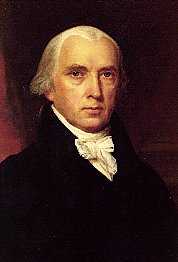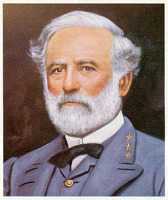Related Topics
Franklin Inn Club
Hidden in a back alley near the theaters, this little club is the center of the City's literary circle. It enjoys outstanding food in surroundings which suggest Samuel Johnson's club in London.
Philadelphia Politics
Originally, politics had to do with the Proprietors, then the immigrants, then the King of England, then the establishment of the nation. Philadelphia first perfected the big-city political machine, which centers on bulk payments from utilities to the boss politician rather than small graft payments to individual office holders. More efficient that way.
Philadelphia Economics
economics
Government Organization
Government Organization
Shaping the Constitution in Philadelphia
After Independence, the weakness of the Federal government dismayed a band of ardent patriots, so under Washington's leadership a stronger Constitution was written. Almost immediately, comrades discovered they had wanted the same thing for different reasons, so during the formative period they struggled to reshape future directions . Moving the Capitol from Philadelphia to the Potomac proved curiously central to all this.
Personal Passions
My own personal short list; eight decades in retrospect.
...Pending and Later Amendments
New topic 2012-08-01 19:06:55 description
Selection of Constitutional Rights for the Bill of Rights
When the First Congress convened in 1789, it confronted more than a hundred proposed amendments to the Constitution, largely stirred up by supporters of Thomas Jefferson who feared any strong government would be too similar to the monarchy we had just discarded. Essentially, Congress dumped these noisy dissatisfactions into the lap of James Madison who had largely constructed the Constitution, constituting a committee with Madison as its chairman. The first ten amendments emerged together as a package, enabling trade-offs and compromises; all subsequent amendments have been taken up individually, one by one. Since members of the First Congress and the Constitutional Convention were largely the same people, much of the durability of the Constitution can be traced to them. And therefore, the tendency of the nation to feel its way into a new idea, sometimes retreating, sometimes plunging ahead, has migrated into the Supreme Court. This result was probably accidental, but nevertheless, the power of the Supreme Court was greatly strengthened by default; it alone can tip-toe out of a Constitutional tangle created by momentary impulses.
After winnowing out duplicates and half-baked ideas, Madison's committee condensed the wildly disparate proposals into ten amendments, supposedly limited to ten by alluding to Ten Commandments which were sufficient for Moses. Three main principles emerged. The Constitution should be parsimonious in granting divine, or natural, rights because what Nature's God had granted was hard to tell but what the judiciary could enforce had limits. But thirdly, granting even these few self-evident rights to slaves might tear the Union apart.

|
| James Madison |
So Madison's committee narrowed the legally enforceable human rights to a handful, selecting only those so self-evident they could withstand the tensions of enforcing them. When contemplating the problem of extending mandated rights to slaves, however, there was no obvious solution at all. That made it easier to limit the Federal Government to enforce a handful of enumerated powers, leaving all unspecified matters to the state legislatures to enforce if they could. The boundary might shift with time, but without saying so, the Bill of Rights kept the Union out of the one main foreseeable problem, of slavery. The unmentioned conflict between universal rights and slavery defaulted to the individual states, or to whomever, but definitely not to the Federal Government.
That tap-dance held together for nearly a century, and then it didn't and we had a Civil War. During all that time, the balance of power was steadily shifting from the confederated states to the centralized federal government, and after the Civil War, it shifted still more. However, the southern confederation may have been defeated, but it was not exactly reconciled, nor were the former slaves exactly equalized. Their current drift toward entitled dependency was particularly unexpected.

|
| Robert E. Lee |
Many post-war expedients were tested to heal these wounds, some of them useful and some, like forcible Reconstruction, disruptive. Two expedients opened new wounds and distracted the country for a century. The first was the intentional weakening of the quality and effectiveness of state governments, to the point where it can now be asserted that state government is the weakest part of our whole government structure. Those who prized universality and efficiency, or who sought greater international power, regarded state legislatures as a hindrance; just look who got us into a Civil War. Consequently, corruption and ineffectiveness were privately tolerated in state legislatures, because discrediting state governments made them easier to ignore. Repairing the resulting imbalance in our overall system is now growing to be one of our greatest problems. Almost no one remembers this was the price of a ratified Constitution, so increasingly that excuse is futile. In fact, in the thirty-seven more recent states to be admitted to the Union, it is not even accurate.
The second response to a sluggish equalization of racial rights was invented by Madison himself. He felt that the ability to migrate from one state to another would discipline any temptation of a state to misbehave. If your state taxes you unfairly, move. If your state government gets too corrupt, first try to throw the rascals out, but in the last extremity, go somewhere else. This concept has worked magnificently in maintaining national interest rates with appropriate local modifications, and we are about to learn whether it will adequately restrain the half dozen states who have pushed the limits of taxes and borrowing. In the case of former slaves, massive out-migration took a century to happen and then it happened all at once, just after World War II. Wave after wave of slave descendants from the rural South got on buses and came to the heart of Northern cities. Overwhelming the ability of weakened local governments to cope, city institutions disintegrated, particularly the public school and justice systems. The consequence is continuing disarray in Washington DC, Baltimore, Detroit -- and Philadelphia -- together with a host of smaller cities like Reading, Newark, Paterson, Wilkes-Barre, and many others, in all of which the unsustainable wave of immigrants added to local industrial and civic problems which had other causes. So now we have two new problems, weakened state government and disruptive migrations, which in other circumstances tended to mitigate each other, but now increasingly make each other worse. Someone must take hold of the issue that applying Madison's concept of competitive states has created a strong state disincentive to deal with poverty.
It took a century for Madison's scheme to break down into war, and Lyndon Johnson was surely quite right to feel a century was long enough to tolerate the disunity of the Civil War. If he could not make people love one another, at least he could enforce the law. State governments were not doing it, so he whipped the Congress into taking it on as a Federal duty, by passing the Civil Rights Act. Half a century has passed with some progress, but surely not an end to the disunity. State governments have been further weakened, but mass migrations have calmed down. In another half century, the slavery issue and its consequences may fully subside. Meanwhile, the reaction of extending federal power continues, now threatening to extend to the medical profession, the finance industry, the automobile industry, and the Internet. Our Constitution continues to survive more or less intact into its third century, and we grow increasingly wary of tinkering with it as we watch most other nations fail to achieve its essential quality. Which is, it survives. Aside from the Bill of Rights and some technical tweaks, there have only been five amendments of any substance. Meanwhile, new federal statutes and regulations grow by a hundred ponderous volumes a year.
Originally published: Tuesday, May 25, 2010; most-recently modified: Wednesday, June 05, 2019
| Posted by: followers exchanege | Feb 13, 2012 9:53 AM |
| Posted by: cheapostay discount | Feb 13, 2012 9:31 AM |